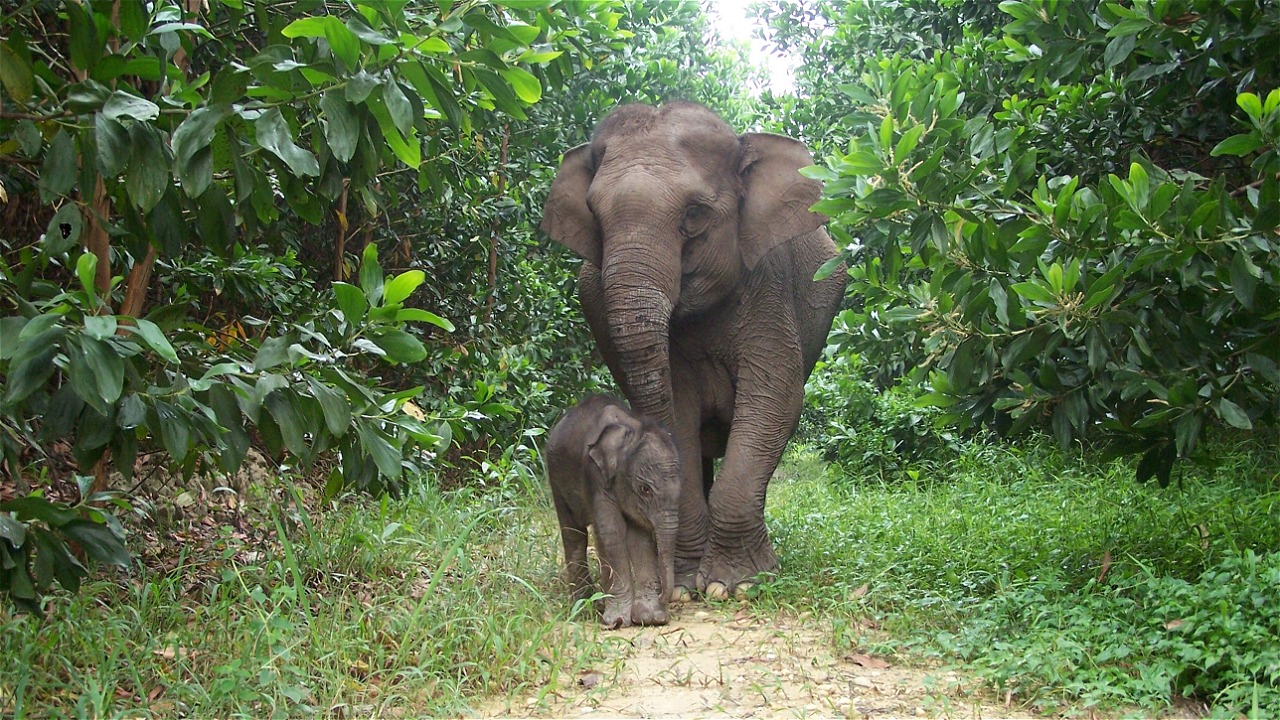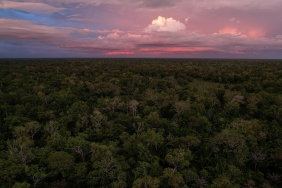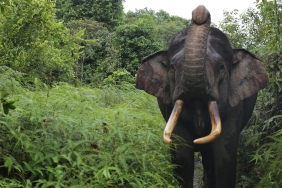HARRISON FORD VISITED WWF’S CAMP IN TESSO NILO NATIONAL PARK, SUMATRA
By : Desmarina Murni
Riau, Sumatra --Hollywood actor Harrison Ford, visited WWF Indonesia’s elephant camp in Tesso Nilo National Park, Riau, Sumatra on 7 and 8 September 2013, as part of his trip to film a documentary movie on climate change and forestry issues called “Years of Living Dangerously”, co-produced by James Cameron and Arnold Schwarzenegger.
Ford, known as the ambassador of United Nations Framework Convention on Climate Change, arrived in the park using helicopter on 5pm on 7 september with 8 others in his film team. As soon as he arrived, Ford was welcomed by Tesso and Nela, two young elephants, member of trained elephant ‘Flying Squad’, managed by WWF Indonesia and Tesso Nilo National Park officials.
Before visiting Tesso Nilo, Ford and his team was filming in Borneo.
In Tesso Nilo, Ford stayed in WWF’sguest house, a small two-bedrooms house with modest facilities. Although the trip was quite short, and the filming schedule was very tight, he seemed to enjoy the nature. He also enjoyed typical Indonesian cuisine prepared by Kempas tour, a local ecotourism group trained by WWF.
During his trip in Tesso Nilo, Ford was accompanied by WWF Indonesia’s Conservation Director Nazir Foead, Head of Tesso Nilo National Park Mr. Kuppin Simbolon and Indonesian President’s Advisor on Supervision and Control Unit (UKP4) Mr. Kuntoro Mangkusubroto. Ford also interviewed local people, NGOs and even an illegal palm oil squatterwho was caught to do some activities in the park.
Tesso Nilo is established as a national park in 2004, as one of the remaining habitas of Sumatran elephants and tigers in Riau. Out of 300 elephants population in Riau, 150 elephants are estimated to be in Tesso Nilo.
Encroachment problem in Tesso Nilo
The main threat faced by Tesso Nilo national park is illegal forest clearing by encroachers to develop palm oil plantations. Satellite Images on April 2013 shows that over 50% of the park (43 thousand hectares out of 83 thousand hectares) has been illegally encroached, mostly for palm oil development, that is contributing to carbon emission.
Having been flew over the park using helicpoter and witnessing severe environmental damaged in Tesso Nilo, Ford expressed his concern. “Ford seems uncomfortable with such distructions happening inside the national park, especially that forest conversion take place to supply big companies’ demand on palm oil”, said Nazir Foead WWF-Indonesia’s Conservation Director.
Illegal encroachment to make way for palm oil plantation has narrowing home range of Sumatran elephant and has been causing increased human-wildlife conflict. At least 12 elephants died in Tesso Nilo and the surrounding areas in 2012 alone, as the result of conflict. Not to mention loss and damage that the surrounding communities have to suffer.
“Law enforcement is one of the key solutions to encroachment problem in Tesso Nilo, particularly to avoid further clearing in the national park and to protect the remaining forests. Persuasive approach also need to be taken, particularly to respect the rights of thelocal people. WWF is ready to support the work of the task force initiated by local government and parliament to identify status of plantations owners within the park and to find the solution,” Nazir added.
“Years of Living Dangerously” will be lauched in Showtime, USAon April 2014.





